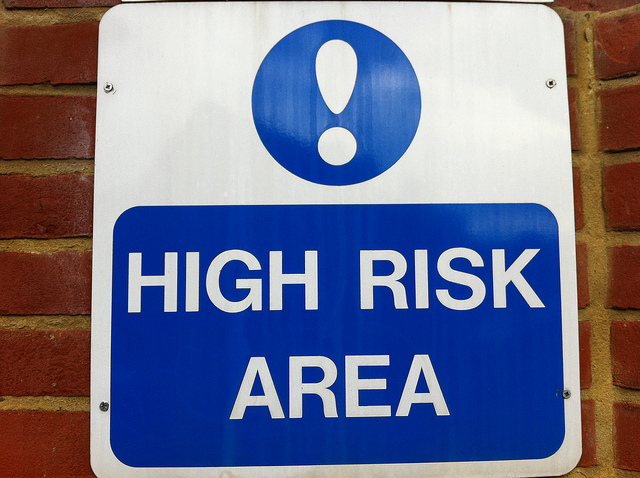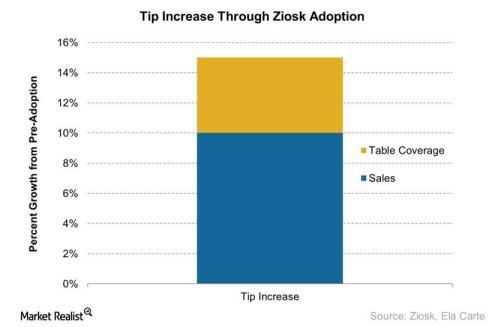We all have said it at some point. Many of us have even used the phrase frequently. And, if you have not said it, you definitely have heard it. In most cases, it comes from the purest of intentions. The bottom line is that we want franchisees to succeed and we believe that these words somehow have the magic power to turn around the performance of a struggling or disgruntled franchisee. Other times we use it because we seek to protect the integrity of the brand and the investment of all franchisees. The fact is that many of us use these words almost like a mantra.
YOU ARE NOT FOLLOWING THE SYSTEM!!!
Intuitively, from a franchise relationship angle, many of us know that these words are not very effective; in fact, the word 'compliance' which is implied in the above statement hurts more than it helps our relationships with franchisees. However, these words and their message are ingrained in franchising to the point of being used automatically and without thought of their consequences. The danger is that from a brain science perspective these are the worst words we can use because they produce exactly the opposite results we seek. Let's explore why.
The Short Answer Is FEAR
The sentence: "You are not following the System" is one of the most fear-producing phrases a franchisee can hear. Think about it. What does it mean? It is an accusation more than a statement of fact; and franchisees, consciously or unconsciously, hear different messages. Here are some examples of the possible interpretations franchisees may give to those words:
- I'm a failure.
- I will never get this right.
- I'm a disgrace to my family and my peers.
- I will lose everything... all of my savings and my investment-all that I have worked so hard to get will be gone. My franchisor will take it all away from me.
- Can I be so dense? I thought I was following the system. What do they mean? What am I doing wrong?
- The franchisor is out to get me. They want me out. They want to resell my territory.
The Science
Our brains are designed to constantly scan for danger. We are always in survival mode. That's how we are wired to protect our lives. However, the dangers we encounter today are no longer the beasts we had to fight thousands of years ago. Instead these dangerous creatures have been replaced by things we interpret as threats to what we hold most dear. To franchisees, losing their franchise means they will lose their investment, livelihood and social status; in their eyes, they won't be able to survive such a catastrophe. Facing such a possibility, their brains think they will die. They signed an agreement and thus they know that not following the system gives the franchisor legal standing to take away their franchise rights. This is very scary; and fear is the worst motivator to use in franchising.
Additionally, when franchisees hear these words applied to their performance, they feel that their reputation and social standing within the organization is also threatened. Research has shown that such a threat activates similar networks as the threat to one's life (1).
Moreover, when we use these words without giving specific examples of where a franchisee may not be following the system, the phrase is construed, rightly so, as unfair. Research also shows that we seem to have a happiness reaction when we process experiences as fair and a disgust or protest response to unfairness (2).
The Technical (Geeky) Stuff
The limbic system of the brain is composed of structures that process emotions such as anger, happiness or pleasure, as well as fear. The Amygdala is one of these structures and it's often called the fear center. When this portion of the brain gets activated, it prevents the engagement of our prefrontal cortex where our cognitive functions reside--it highjacks our ability to reason.
The job of the amygdala is to prepare the body for emergency situations. And, as such, it has a three-pronged reaction to a threat: flight, fight or freeze. When a real or perceived threat is encountered, energy is diverted to that part of the brain that needs to get us ready to deal with the threat and danger in order to save our lives. This means that there is very little energy going to the prefrontal cortex. In other words, in a state of fear, the orchestration between thought and action, planning, problem solving, complex thought, goal-centered mind activities, and the ability to respond in a logical and cool manner all escape us.
When we use the words "You are not following the system" we send franchisees into a fear response. They will react by getting angry (fight), avoiding us or the issue (flight), or simply by not doing anything different (freeze). In essence, these words activate their amygdalae and the consequence is that they take away, or at the very least, highly diminish the franchisees' cognitive ability to implement the franchise system. The result: we achieve the exact opposite of what we wanted.
Why do we use these words in franchising?
There are many reasons why we have come to use this phrase so often in franchising. And, most of these motives are well meaning, even when misguided. For example:
- We may believe that this phrase has the magical power to produce franchise success.
- We may believe that non-compliant franchisees make a conscious choice and act like teenagers by rebelling against the system, and thus we use the phrase in an assumed paternal role to scold or punish them.
- We may believe that these words will create the awareness franchisees need to make the necessary corrections and to change their behavior and their results.
- We may believe that not following the system is the only reason a franchisee doesn't achieve the results he or she seeks.
- We may believe that our most important role as franchisors is to protect the integrity of the franchise system and the investment of all franchisees, and furthermore we may believe that these words will help us accomplish that.
- We may believe that our attorney's insistence on system compliance is so critical to our success that we create an organization where the franchise relationship is solely defined and upheld by the legal agreement and not by the values of the company; or
- We may believe we have not followed our own system, and thus feel guilty and ashamed.
Yet, perhaps, just perhaps, our own fear center is triggered when franchisees fail. Perhaps we make their struggle mean that we have completely failed or that what we have created or have faith in (i.e., the franchise system) may not be as effective as we once thought. Perhaps we use these words to point the finger in the other direction because our brains have gone into a fight mode.
Why don't franchisees follow the system?
There are many possible reasons that cause a franchisee not to follow the system. They include: lack of understanding, lack of clear instructions and procedures, lack of a coherent message and directions across the company, weak training programs and/or support systems, level of difficulty or required change in the way a franchisee thinks and/or behaves.
From a brain science perspective, a franchisee engages in, or disengages from, the franchise system according to his or her perception of whether the system is rewarding or threating. Assuming that the franchisor provides strong training and support programs, clear messages and directions and a safe environment for learning to take place, a franchisee who does not follow the system basically has encountered something in the system that is a threat to him or her.
An Example
A franchisee of a fast food restaurant may decide to change a recipe to reduce the amount of the most expensive ingredient. Upon examination you find that the franchisee believed that her profit margin would be significantly reduced. This may be a true fact; but the franchisee is most likely unaware that her decision was led not by that fact but by her fear that a lower profit margin was going to jeopardize her ability to make a decent living for her family. It's this fear that is leading the decision and interfering with her reasoning abilities. She is focusing so much on a single indicator and what she is making it mean that she can't see the consequences of her decision. The fact that she soon will start losing customers because her quality has decreased eludes her. She can't see that her fears permeate all she does and her entire business, or that it will result in exactly what she fears most. If her franchisor's representative were to tell her: "You are not following the system" her fear and thus her inability to solve her problem will just get worse.
So, what can we do?
- Think before you speak!
- Create a safe space where you can have honest communication.
- Don't use blame or guilt tactics.
- Know that each franchisee is different and so is the meaning they attach to the world; therefore there is not one answer that applies to all struggling franchisees.
- Help your franchisees discover what meaning they are attaching to the part of the system from which they have disengaged.
- Explain to them how the brain works and how it can help us and also how some portions of our brains can highjack our ability to solve problems and use reason.
You don't have to get technical or geeky; a general explanation suffices. When people understand what's happening to them, what's prompting their behavior, when they realize that this is how we humans are wired and that is not them personally, they can start to make changes. Awareness is a key; in addition, repetition and coherence are also critical to make the change sustainable.
References
(1) David Rock, Your Brain at Work
(2) Melanie Greenberg, The Mindful Self Expression
The post What's the WORST Thing You Can Say to Your Franchisees appeared first on InFraSu.



